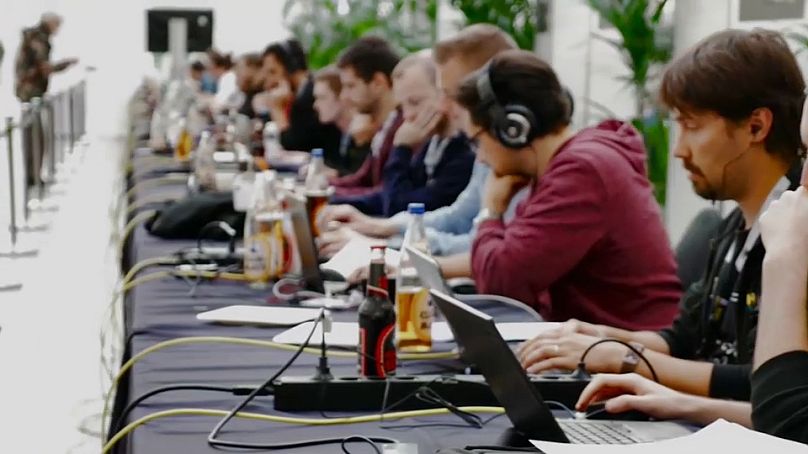Hacking’s adrenaline rush can be addictive. But many believe black-hat (illegal) hackers can develop a moral compass and learn to use their skills for good – especially if authorities intervene when they’re young.
In today's digital age, where technology permeates every aspect of our lives, the threat of cybercrime looms large. With hackers constantly pushing boundaries, both offline and online, it becomes crucial to examine the motivations and ethics behind hacking.
Many believe that "black hat" (illegal) hackers can develop a moral compass and learn to use their skills for good, especially if the authorities intervene when they are young.
"Cybercrime knows no age group and unfortunately children, being naïve and vulnerable, are the majority of those who become this group of cybercriminals," says security researcher Mike Jones.
The National Police Force in the Netherlands focuses on the prevention of cybercrime. Its unique RE_B00tCMP (Reboot Camp) and HACK_Right programmes aim to reorient young hackers in a positive direction.
"They have a full day where they learn all about hacking, about how to use your skills in a good way without breaking the law," explains Floor Jansen, team leader of the Dutch police's cybercrime prevention squad.
Hacking and addiction
"Hacking and addiction go hand in hand. And the reason I say that is because anyone with an addictive personality can easily become addicted to an adrenaline rush. And that's exactly what checkpointing provides, it's that biofeedback, that rush," Jones explains.
GhostExodus, incarcerated for 11 years for his illegal activity as a young man, shares his story of redemption.
"I was a lost child, I had a lost mother. So hacking became a way to cure me of my powerlessness," he says. "Rebuilding my life after being incarcerated for 11 years, that was difficult. I didn't really have any sense of direction."
From "black hat" to "white hat"?
Erik Van Oosbree, a white hat hacker and penetration tester, explains the difference between these terms:
"A 'white' hat hacker is a hacker who hacks in a completely legal way. He has a contract, the approval of the company that he is allowed to hack.
"The 'black' hat hacker is the exact opposite of a white hat hacker. The motivation is rather selfish, not caring about the legal consequences. Most of the time the motivation is money, but it can also be for fame."
"And then there is the 'grey' area where the cheating is perhaps done for a good cause, but without someone's permission. Doing something good, while at the same time breaking into someone's system."
"I know several people who have made that change. It all depends on personal motivation, given enough encouragement or enough pain or motivation, people will change," says Mike Jones.
The world of hacking is multifaceted, encompassing both cybercrime and ethical hacking. Understanding the motivations and ethics behind hacking is crucial in addressing the growing threat of cybercrime. By providing education, intervention, and support, societies can guide talented individuals towards ethical hacking, fostering a safer digital landscape for all.




